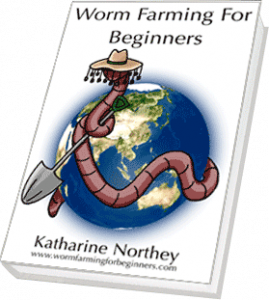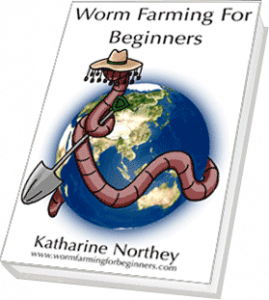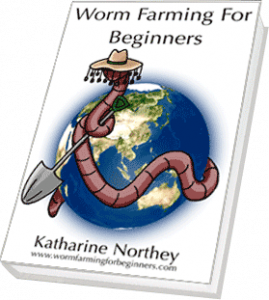Raising earthworms.
Now when you ask yourself the question of “how do I start raising earthworms?” are you meaning the type of worm that you can feed your vegetable scraps to? Or, are you meaning the kind of worm you can put back into your garden beds? This is a very important question to consider as each type of worm does a different type of job. Now if your wanting to start raising earthworms to either : Go fishing with, or, to release them back to your garden beds then earthworms could be the choice for you.
Now if you’re planning on going fishing with the worms, take a moment and check out my article on “Bait worms” , it may just clear the subject up for you. But, if you’re planning on releasing the earthworms back into your garden, then please read on..
Earthworms like a completely different environment to composting worms. When preparing the beds for the earthworms try using a soil mixed with decomposing leaves. Refrain from using leaves that once belonged to Eucalyptus or chilli species as the essential oils present will be too strong. Also avoid leaves that once contained a milky sap as these are poisonous. If the soil is too “heavy” or “puggy” try adding some course washed river sand to the mix to aid in aeration and drainage.
In “Worm Farming for Beginners” there is a housing structure called the “Bathtub Method”. 
Simply follow the steps for this type of housing but use the bedding material I have just described instead of the mix indicated in the book.
The same principles apply with environmental conditions, pests, and feeding.
Earthworm farms/ earthworm farming.
There are lots of types of worms for lots of types of jobs. When your planning to use the worms for composting your vegetable scraps etc its probably best to choose “composting worms”. These specific breeds of worms are chosen for composting because of there ferocious appetites and there enjoyment for staying in the top layers of soil. Composting worms occupy a different ecological niche, living near the surface where there are high concentrations of organic matter, such as on pastures or in leaf mould, or under compost piles.
Now, if your talking about “earthworm farming” then that’s a different kettle of tea all together. Earthworm farming differs from composting worm farming in the following ways:
- Earthworms and composting worms like a different kind of diet.
- Due to the incapacity of the compost-raised worm to absorb sustenance from a soil wich is lacking humus (decayed animal matter), any transfer of it to an ordinary soil will prove lethal. Likewise, any endeavour to relocate an earth worm to a compost pile will result in fatalities.
- Anatomically, the compost worm, is almost one-third in size smaller than an earth worm. But being of the same family, its clitellum, head band, and segments are indistinguishable, except that they are more accentuated.
- In habits, earthworms burrows deeper into the soil in search of sustenance, whereas, the compost worm generally doesn’t burrow deeper the 8 – 12 inches. This is because the compost worm is a feeder on decaying organic matter, which is seldom found deeper than 12 inches it, so, it remains within that depth.
So , if your deciding to create a “composting worm farm” than maybe you should choose to purchase composting worms instead of earthworms. Red wigglers are generally sold in most hardware stores and are easy to raise and look after.
For more information on how easy it is to create a worm farm check out my new book “Worm Farming for Beginners”
It has everything you need to know about starting your own composting worm farm!
Happy Worm farming!
Earthworm Castings.
Worm castings are recognised throughout the world as the richest natural, chemical free plant food known to man. (WonderwormUk.com, 2008)
Castings are odourless, non toxic, and are suitable to use on all plants, including delicate seedlings.
Earthworms don’t digest the organic matter that they “eat”. They are actually digesting the micro-organisms that are feeding on the organic waste matter. When they excrete the castings, there are now up to eight times as many beneficial micro-organisms as there were previously. If there were disease pathogens present on the organic matter digested by the worms, it is killed off by active micro-flora and intestinal secretions in the worms digestive system. In addition, the vermin-compost contains many additional minerals (compared to that of regular soil) that aid in plant growth, and are rich in humic and fulvic acids which balance pH of the soil.
Castings contain:
– A neutral pH of 7 no matter what the diet of the worm. – (“If you are looking for worms, you are in the right place”– http://members.tripod.com/-wormigrow/)
– Beneficial bacteria, plant growth hormones, vitamins, enzymes, amino acids, selenium, organic carbon.
– 5 times the available nitrogen, 7 times the available potash, and 11/2 times the available calcium than found in good top soil.
– Humic acid: which is a beneficial fungal activator.
– Fulvic acid: which is a beneficial bacteria activator.
– Auxins: which is an organic substance characterised by its ability to promote growth, particularly in roots. It is an active ingredient in rooting compounds.
– Not a single trace of E.coli, salmonella or other pathogens as they are destroyed due to the competition from the active micro flora and intestinal secretions. Most of our human pathogens are anaerobic and cannot survive in the aerobic environment created by worms.
– A “slow release” quality. After digestion, the undigested material-moves through the alimentary canal of the worm, a thin layer of oil is deposited on the castings. This layer erodes over a period of 2 months. So although the plant nutrients immediatelyavailable, they are slowly released to last longer.
– (“If you are looking for worms, you are in the right place” http://members.tripod.com/-wormigrow/)
–
By adding worm castings to your existing garden soil you will be actively helping plant growth by:
– Increasing the organic matter (humus) content. This will make your soil less likely to become compacted.
– Increasing the water retaining qualities. Castings can retain up to 9 times their weight in water.
To find out more on how worm castings improve your soil simply purchase:
“Worm Farming for Beginners”


